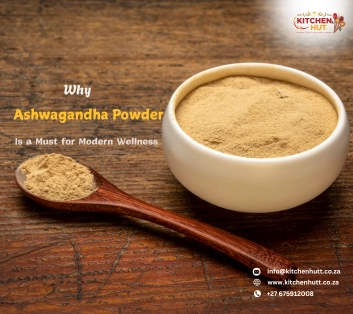Freshly Packed • Quality Assured • Reliable Delivery
Which is Healthier: White or Black Sesame Seeds?

Sesame seeds, known for their nutty flavor and rich nutritional profile, have been a staple in diets and traditional medicine for centuries. They come in two primary varieties: white and black. Both types are prized for their unique health benefits, but the question remains: which is healthier? Let’s delve into the nutritional differences, benefits, and ideal uses of white and black sesame seeds to help you decide.
Nutritional Composition
White and black sesame seeds share many similarities in their nutritional content but differ in pigmentation and processing.
-
White Sesame Seeds: These are hulled seeds, meaning their outer husk has been removed. This makes them slightly less fibrous but more suitable for culinary uses requiring a smooth texture. They are rich in calcium, iron, magnesium, and healthy fats.
-
Black Sesame Seeds: These are unhulled, retaining their outer husk. This gives them a higher fiber content and a slightly more intense, earthy flavor. Thanks to their darker pigmentation, they also contain higher levels of antioxidants.
Health Benefits of Sesame Seeds
Both white and black sesame seeds offer numerous health benefits, but their specific advantages differ slightly due to their composition.
Rich in Essential Nutrients
-
Both types are excellent calcium, magnesium, and phosphorus sources, vital for maintaining healthy bones and teeth.
-
They are also rich in B vitamins, which support energy production and overall cellular health.
Antioxidant Properties
-
Black Sesame Seeds: Contain higher levels of lignans, sesamin, and sesamolin, potent antioxidants. These substances assist in mitigating oxidative stress and lowering the likelihood of chronic illnesses.
-
White Sesame Seeds: While they also contain antioxidants, the levels are slightly lower compared to black sesame seeds.
Supports Heart Health
-
Both types are rich in unsaturated fats, particularly omega-6 fatty acids, which help lower bad cholesterol (LDL) levels and improve overall heart health.
-
Black sesame seeds’ higher antioxidant content further contributes to cardiovascular protection.
Improves Skin and Hair Health
-
The high levels of zinc and vitamin E in sesame seeds promote healthy skin by supporting collagen production and reducing oxidative damage.
-
Black sesame seeds, in traditional medicine, are often linked to hair health, with claims of reducing hair graying and promoting growth.
Digestive Health
-
Black Sesame Seeds: Their unhulled nature makes them higher in dietary fiber, supporting better digestion and preventing constipation.
-
White Sesame Seeds: While they contain less fiber, they are still beneficial for gut health.
Bone Health
The calcium content in sesame seeds makes them an excellent choice for maintaining strong bones. Black sesame seeds may have a slight edge due to their mineral-rich outer layer.
Culinary Uses
-
White Sesame Seeds: Commonly used in baking, they are a key ingredient in tahini, salad dressings, and confectionery like sesame brittle. Their mild flavor makes them versatile.
-
Black Sesame Seeds: Often used as toppings for sushi, rice dishes, and desserts, they bring a unique flavor and striking visual appeal. They are also popular in traditional Asian desserts and medicines.
Cultural and Traditional Perspectives
-
In Ayurveda and Traditional Chinese Medicine, black sesame seeds are often preferred for their perceived ability to nourish the kidneys, improve energy levels, and promote longevity.
-
White sesame seeds are frequently associated with bone health and are widely used in Middle Eastern and Mediterranean cuisines.
Which Should You Choose?
The choice between black and white sesame seeds largely depends on your health goals and culinary preferences:
-
For Antioxidants: Choose black sesame seeds. Their higher lignan and pigment content make them superior in fighting oxidative stress.
-
For Smooth Textures: Opt for white sesame seeds. They blend better into dressings, tahini, and desserts.
-
For Digestive Health: Black sesame seeds, with their unhulled nature, provide more fiber.
-
For Bone Health: Both types are excellent, but black sesame seeds may offer a slight edge due to their higher calcium content.
How to Incorporate Sesame Seeds into Your Diet
-
Sprinkle on Salads: Add toasted sesame seeds for a nutty crunch.
-
Make Tahini: Use white sesame seeds to create this versatile paste for hummus or dressings.
-
Add to Smoothies: Blend black sesame seeds into smoothies for added nutrition.
-
Use as Toppings: Sprinkle black sesame seeds on rice, sushi, or baked goods for flavor and visual appeal.
-
Prepare Sesame Milk: Soak and blend sesame seeds to create a nutritious dairy-free milk alternative.
-
Try Traditional Recipes: Explore dishes like sesame brittle, sesame balls, or sesame-coated meats.
Storage Tips
To preserve their freshness, it is advisable to keep sesame seeds in a sealed container located in a cool and dark environment. Refrigeration can prolong their shelf life, especially for black sesame seeds, which may be more prone to rancidity due to their higher oil content.
Precautions and Allergies
-
Allergies: Sesame seeds are a common allergen. If you have a history of seed or nut allergies, consult a healthcare provider before consumption.
-
Moderation: While sesame seeds are nutritious, consuming them in large quantities may lead to weight gain due to their high caloric density.
Conclusion
Both white and black sesame seeds offer impressive health benefits, making them valuable additions to a balanced diet. If you’re looking for higher antioxidant content and fiber, black sesame seeds are the better choice. For smoother textures and mild flavors, white sesame seeds are ideal. Ultimately, incorporating both into your diet allows you to enjoy their unique benefits and versatility.
Whichever you choose, these tiny seeds pack a powerful nutritional punch, promoting overall health and well-being.
Note: We are only providing information, not a suggestion. Please consult your doctor before using it.












